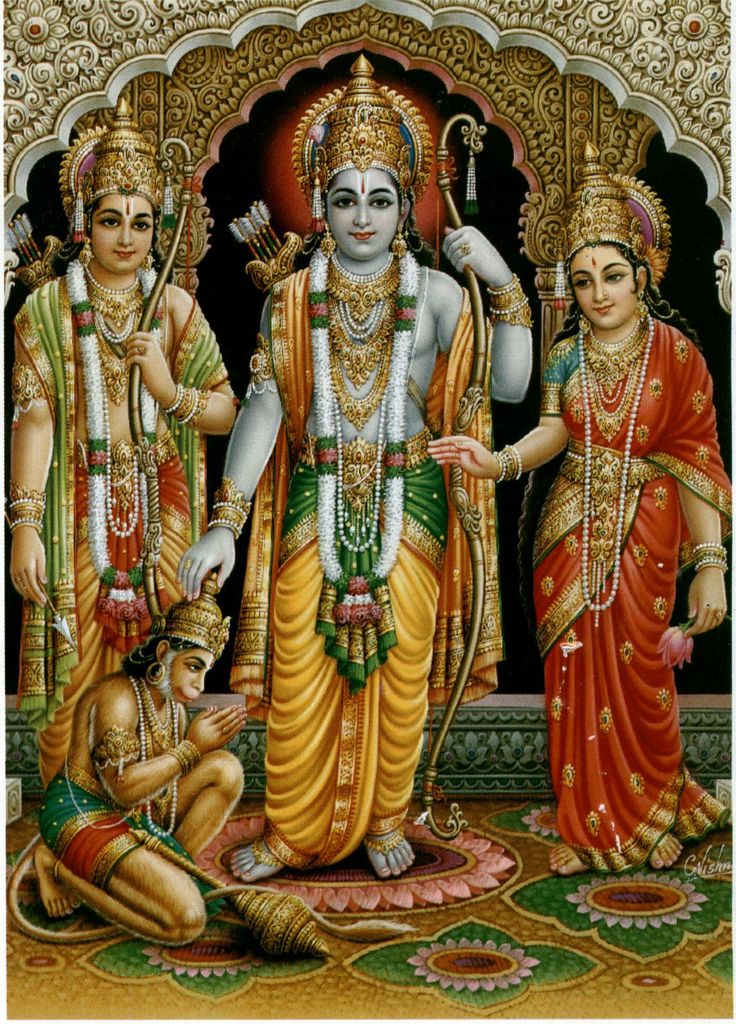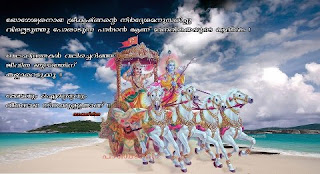3.Duty: An Empirical Manifestation of True Being : 4.
The Teachings of the Bhagavadgita :
You can sow the seed in a field and expect a harvest. In a way, you may be justified in expecting a large harvest to follow the fact of your sowing a seed, putting the manure, watering it, fencing it, guarding it. But do you believe that this is the only thing that determines the harvest? There are other conditions necessary for the harvest to be reaped apart from your tending it, and apart from all that you have done for it – the rainfall, the seasons, and the other natural conditions necessary may be greater conditioning factors than your need to sow the seed and pour manure and water into it; and many other invisible factors also are involved. Because we are not omniscient, we cannot know all the things in the world, we cannot know what result will follow from what action. Hence, it is not proper on the part of the person to expect a particular fruit from any action because the fruit is not in your hands, while the duty is your obligation. You can present a case before a court, but you cannot decide the case yourself – that has to be done by the judge. If you already decided the case, there is no need of presenting the case at all. So, the performance of duty is something like presenting a case, and the judgment is not in your hands, so don't expect the fruits.
"Knowing all this, how is that we seem to be sorrowful, bereaved, and not satisfied? Why is it, O Krishna?" Thus, the question is raised by Arjuna. "I understand what you say, but still I am very unhappy. Man is driven to the wrong, he always performs what is not good for him – he perpetrates error. Even though one can understand what you are saying, what is the reason?" Kama esakrodha esa rajo; gunasamudbhavah mahasano mahapapma vidhyenamiha vairinam: The enemy of man is his own inner instinctive impulsions. There are instincts that are emotional in nature, impulsions which are sometimes overwhelming and impetuous in their action. They can even confound the intellect and the reason of man. When a passion preponderates, reason subsides; the intellect will not work when the emotions are too strong. A man perpetuates offences though he knows that there is a law which will not permit the perpetration of this act.
A person who does wrong under normal conditions knows that such an action is wrong. But when a person is in height of passion, he is not a normal person – the normalcy is absent there. He becomes a temporary 'out of gear individual' who has lost the common sense that is required of a normal human individual. Like a flood that can devastate villages and destroy people, emotions can rise under given conditions. Then law does not operate, because one cannot be even aware that such a thing as law exists. A person may be hanged for an acute offence due to the operation of a law. It does not mean that the person is unaware of the existence of such a law, but at that particular moment he becomes unaware of it because reason fails. So, while the reason is a great guide indeed, perhaps the only guide that you have, it can get deflected out of its normal course by the vehemence of the flood of emotion which is the impulsion behind the feelings, which can gain an upper hand. These feelings, which are purely personal, selfish and would not take into consideration even the existence of other people, these emotions are called kama, krodha, lobha.
Swami Krishnananda
To be continued ....


.jpg)


Comments
Post a Comment